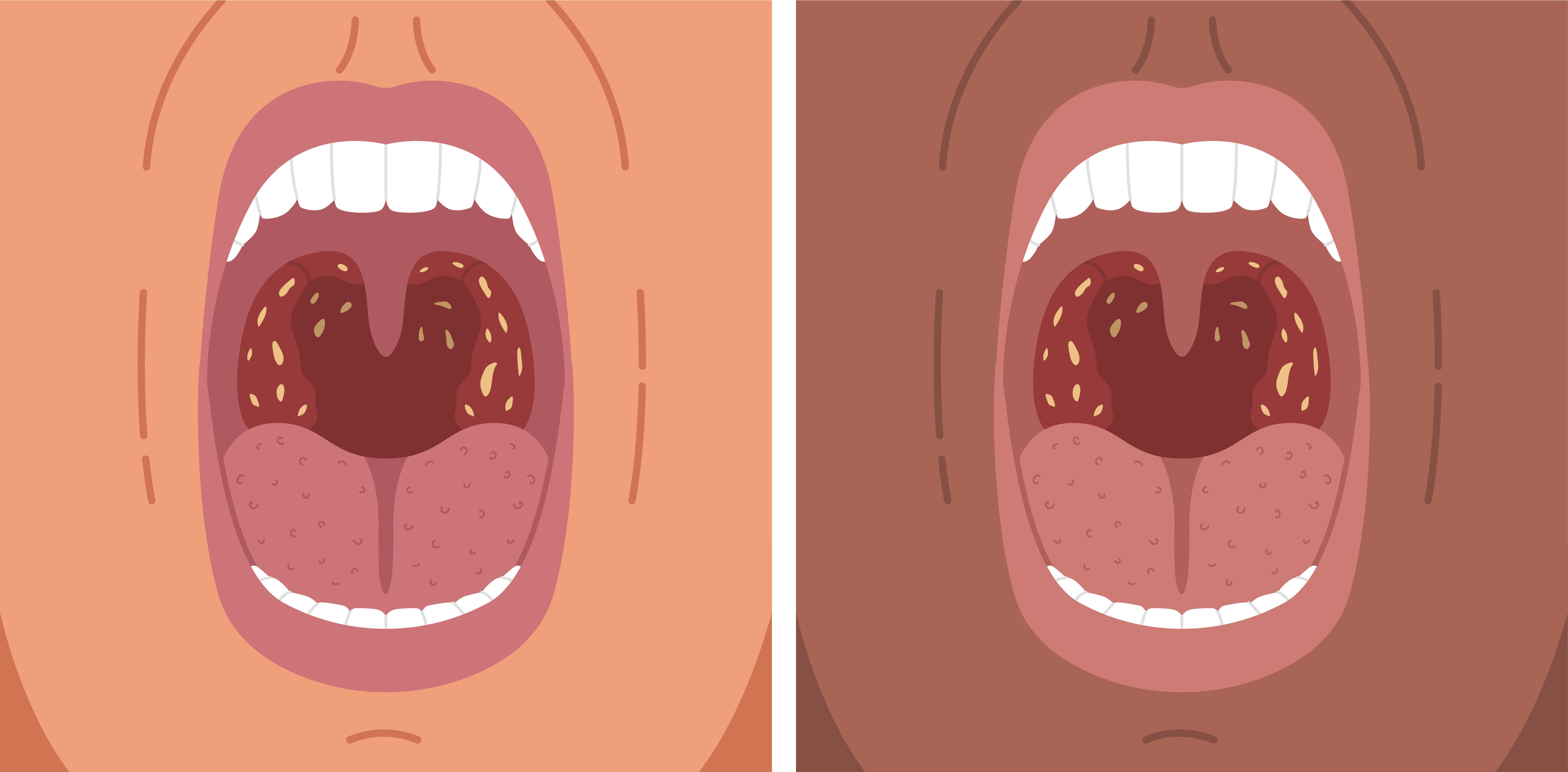
Bad breath can occur for many reasons.
Sometimes it’s the result of bad dental hygiene or recently eaten food. It could be from a problem with your teeth or mouth. It can even stem from infection and illness down in your stomach, liver, or kidneys.
But one lesser-known cause of bad breath is tonsil stones.
What are tonsil stones?
Your tonsils are shaped like a labyrinth of crevices and pockets at the back of your throat.
Debris such as dead cells, mucus, saliva, and bits of food can get stuck in those crypts and then accumulate and harden into tonsil stones, formally called tonsilloliths.
But they are more than just stones. They are living biofilms. Bacteria and fungi feed on these buildups, which can then cause an unpleasant odor.
Tonsil stones can be very tiny, even smaller than a grain of rice, but they can sometimes grow to the size of a grape. Often, people with tonsil stones don’t even realize they have them, and they rarely cause any severe health complications.
Potential Causes and Symptoms of Tonsil Stones
Tonsil stones are more common in people with enlarged tonsils, a history of recurrent tonsillitis (tonsil inflammation), or poor oral hygiene.
Symptoms include:
- sore throat
- trouble swallowing
- coughing
- swollen tonsils
- visible debris on the tonsil
- bad breath
It is common for smaller-sized tonsil stones not to present with any symptoms.
Prevention and Treatment for Tonsil Stones
Preventing tonsil stones from forming in the first place is the best strategy. This can be helped by:
- good oral hygiene – cleaning to the back of your tongue
- gargling with saltwater
- stay hydrated with plenty of water
- stop smoking
While most tonsil stones are harmless, they can smell bad and cause discomfort, so many people want them removed when noticed.
Sometimes, this can be as simple as gargling salt water vigorously and coughing to dislodge the stones in mild cases.
Trying to remove the stones yourself with a tool can be very dangerous, as your tonsils are very delicate tissues and can be damaged easily.
If the tonsilloliths are growing too large and causing pain, minor surgical procedures may be recommended, such as laser removal or removal of the tonsils.
Antibiotic treatment can also help eliminate the bacteria that contribute to tonsil stone formation and development, but this won’t remove whatever debris the bacteria are feeding on.
Overall, tonsil stones are a common problem and don’t tend to be a massive problem for most people.
If you are experiencing bad breath, improving your dental hygiene is always a good idea. If the bad breath persists or is accompanied by other symptoms, see your healthcare provider to diagnose the issue and to help you find the best treatment strategy for you.






















